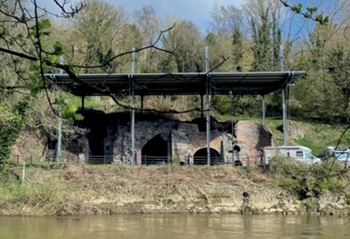Short period programme
Programmes describe the sequence in which tasks must be carried out so that a project, or part of a project, can be completed on time.
When deciding on the amount of detail that is required on a programme, it is important to consider what the programme is for. Senior management may require a more detailed breakdown, while operational management may require details of activities on a day-to-day basis. The level of planning tends to become more detailed as the project progresses, and once the contract stage is reached many contractors will prepare short period programmes.
Short-term or short period programmes allow the overall construction programme to be broken down into specific time periods that can then be scheduled in much greater detail.
On refurbishment or renovation projects of a relatively short duration, Short period programmes may be prepared on a daily basis for each trade employed on the project. On large projects, the short period programme may, in effect, act as a sub-programme that keeps the master programme up to date.
For example, a programme covering 3 weeks’ work might be produced, and at the end of the first week of this programme, another 3-week programme prepared for the following period that reflects progress, problems and any changes to be made.
Short period programmes offer the contractor a better means of controlling day-to-day operations on site and act as a useful method of communication between the site manager, the foreman, subcontractors and trades. They can also be used in toolbox talks in order to engage the workforce with the health and safety implications of the programme.
The short period programme may be prepared by a site-based planning engineer or construction manager. The main objectives of the short period programme are:
- To assist in the coordination of operations in the short term, especially when considering the continuity of work for trades and subcontractors.
- To keep the master contract programme under constant review.
- To highlight information requirements in the short term in order to meet planned completion dates for each stage of the work.
- To assess key material requirements.
- To keep senior site management informed of progress.
NB The Code of Estimating Practice, seventh edition, published by the Chartered Institute of Building (CIOB), suggests that the short term programme is:
| The name given to the contractor’s strategic works programme for a particular section of the works. It should be a critical path network, integrated with the master programme and show, amongst other things, the resources to be used on each activity and their duration and the cost calculated by reference to the productivity that the resource is planned to achieve. |
[edit] Related articles on Designing Buildings Wiki
- Accepted programme.
- Activity schedule.
- Baseline programme.
- Contract documents.
- Contractor’s master programme.
- Critical path method.
- Design programme.
- Information release schedule.
- Key performance indicators.
- Lead time.
- Milestones.
- Pre-construction information.
- Programme.
- Programme consultant.
- Programme for building design and construction.
- Progress of construction works.
- Scheduling construction activities.
- Tender works programme.
[edit] External references
- ‘Construction Planning, Programming and Control’ (3rd ed.), COOKE, B., WILLIAMS, P., Wiley-Blackwell (2009)
Featured articles and news
Art of Building CIOB photographic competition public vote
The last week to vote for a winner until 10 January 2025.
The future of the Grenfell Tower site
Principles, promises, recommendations and a decision expected in February 2025.
20 years of the Chartered Environmentalist
If not now, when?
Journeys in Industrious England
Thomas Baskerville’s expeditions in the 1600s.
Top 25 Building Safety Wiki articles of 2024
Take a look what most people have been reading about.
Life and death at Highgate Cemetery
Balancing burials and tourism.
The 25 most read articles on DB for 2024
Design portion to procurement route and all between.
The act of preservation may sometimes be futile.
Twas the site before Christmas...
A rhyme for the industry and a thankyou to our supporters.
Plumbing and heating systems in schools
New apprentice pay rates coming into effect in the new year
Addressing the impact of recent national minimum wage changes.
EBSSA support for the new industry competence structure
The Engineering and Building Services Skills Authority, in working group 2.
Notes from BSRIA Sustainable Futures briefing
From carbon down to the all important customer: Redefining Retrofit for Net Zero Living.
Principal Designer: A New Opportunity for Architects
ACA launches a Principal Designer Register for architects.




















